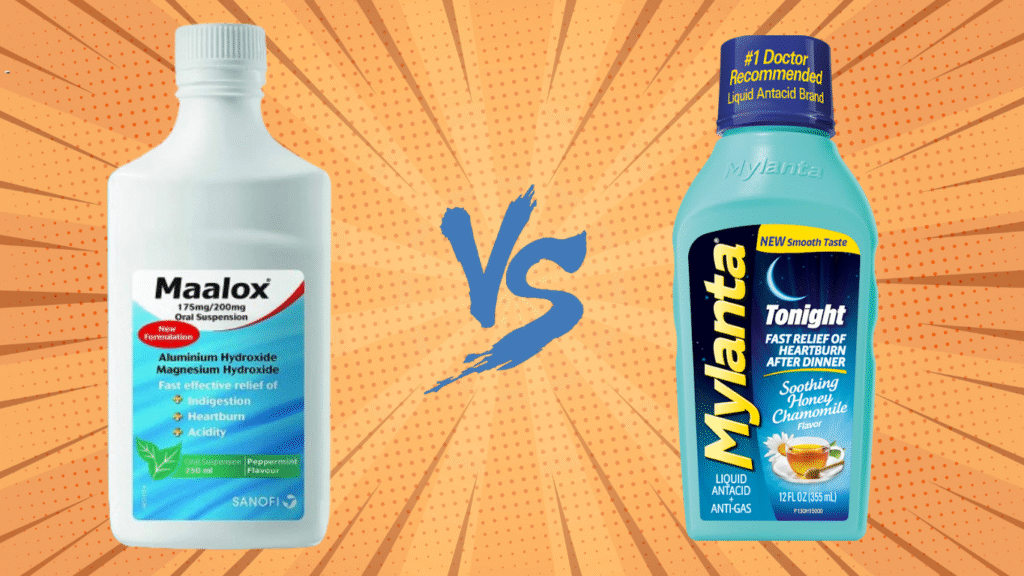Magnesium is an important mineral that is involved in over 300 biochemical processes in the body. It supports nerve and muscle function, improves sleep quality, and helps reduce anxiety, making it a noteworthy nutrient. Among its various forms, magnesium glycinate is known to be particularly gentle and easy to absorb.
In this article, we’ll detail everything you need to know about magnesium glycinate—its benefits, recommended dosage, potential side effects, and how it compares to other magnesium types.
What is Magnesium Glycinate?
Magnesium glycinate is made from magnesium and glycine. Glycine is an amino acid known for its soothing effects on the brain. This unique blend makes magnesium glycinate particularly ideal for those aiming to improve sleep, reduce stress, and boost muscle function, without the digestive side effects often associated with other magnesium supplements.
Plus, it is one of the most bioavailable forms of magnesium, indicating that your body can absorb and use it effectively.
Top Health Benefits of Magnesium Glycinate
1. Improves Sleep Quality
Magnesium helps in calm the brain and prepare the body for sleep. The glycine element also contributes to lowering body temperature and improving sleep quality. Together, these two produce a calming effect that can help you fall asleep faster and sleep deeper.
2. Reduces Stress and Anxiety
Magnesium helps maintain healthy cortisol levels and improves the function of GABA (a neurotransmitter that calms the nervous system). Glycine contributes to this effect by promoting a sense of mental calmness. People who are experiencing chronic stress, anxiety, or burnout may find relief from this combined effect.
3. Supports Muscle and Nerve Function
Magnesium is essential for muscle contractions and the transmission of nerve impulses. A deficiency can cause cramps, twitching or even restless leg syndrome. Magnesium glycinate is especially beneficial for athletes, active people and those suffering from fibromyalgia or muscle stiffness.
4. Eases PMS Symptoms
Women suffering from PMS often experience cramps, irritability, and mood swings. Magnesium glycinate may help balance hormonal changes, reduce inflammation, and improve mood by increasing neurotransmitter activity and muscle relaxation.
5. Promotes Heart and Blood Sugar Health
Magnesium plays an important role in controlling blood sugar levels and maintaining healthy blood pressure. Taking magnesium glycinate may be beneficial for individuals with type 2 diabetes or prehypertension, as it increases insulin sensitivity and improves vascular health.
Magnesium Glycinate vs. Other Forms of Magnesium
| Type | Best For | Pros | Cons |
|---|---|---|---|
| Glycinate | Sleep, anxiety, muscle health | Gentle, well-absorbed | Slightly more expensive |
| Citrate | Constipation, digestion | Laxative effect, well-absorbed | Can cause diarrhea |
| Oxide | General use (low cost) | High elemental magnesium | Poor absorption |
| Threonate | Cognitive & brain health | Crosses blood-brain barrier | Low elemental magnesium content |
Recommended Dosage
The usual daily dosage of magnesium glycinate ranges between 200 mg and 400 mg, varying depending on factors such as age, gender, and health status.
- For adults: 300-400 mg daily
- For women suffering from PMS: Up to 400 mg before and during menstruation
- For sleep and stress relief: 200-300 mg before bedtime
When to Take It
- It is best taken in the evening or before bedtime to improve sleep.
- You can take it with or without food (mild on the stomach).
Note: It is important to consult a healthcare professional before starting any supplement, especially if you have kidney problems or are taking prescription medications.
Possible Side Effects and Precautions
Magnesium glycinate is generally well accepted by most individuals. However, some people may experience:
- Drowsiness (if taken during the day)
- Mild stomach discomfort (uncommon)
- Loose stools (if taken in excessive amounts)
Who Should Be Cautious?
- People suffering from kidney disease
- Those taking antibiotics, diuretics or blood pressure medications
- Pregnant or breastfeeding women (seek medical advice beforehand)
Who Should Consider Taking Magnesium Glycinate?
Magnesium glycinate may be helpful if you:
- Struggle with persistent stress or anxiety
- Have difficulty falling asleep or maintaining sleep
- Experience muscle cramps, spasms or cramps
- Suffer from PMS or menstrual pain
- Have symptoms of magnesium deficiency (such as fatigue, irritability or inability to concentrate)
How to Choose the Best Magnesium Glycinate Supplement
When buying magnesium glycinate, keep the following in mind:
- The label should mention the elemental magnesium (rather than just the total weight of the compound)
- It should be third-party tested for both purity and efficacy
- The manufacturer should be GMP-certified
- Choose from capsule, powder, or liquid form depending on your preference
Popular Brands
Frequently Asked Questions (FAQs)
Is magnesium glycinate safe to take daily?
Yes, it is generally safe for most people when taken at the recommended dosage. Always seek medical advice if you are taking any medications or have any health problems.
How long does it take to work?
Some people find they feel more relaxed within just a few hours. However, for lasting benefits like better sleep or less anxiety, it’s best to wait 1 to 2 weeks.
Can I take it with other supplements like vitamin D or melatonin?
Absolutely. It often works effectively with vitamin D, B-complex, and melatonin, but it is important to be careful about the total dose and the combinations used.
Does magnesium glycinate cause drowsiness?
It can promote relaxation, therefore making it perfect for use at night. After taking it, some people may feel light-sleep.
Is it suitable for children or teens?
Only under the guidance of a pediatrician or healthcare provider.
Conclusion
Magnesium glycinate is one of the best magnesium supplements on the market—it’s easy on the stomach, easily absorbed, and effective for a number of health issues. Whether you’re struggling with stress, sleep problems, muscle cramps, or menstrual issues, it provides a natural and scientifically backed way to improve your health and perform at your best.
If you’re thinking about adding magnesium to your daily routine, magnesium glycinate may be an ideal choice to start with.








Great info.